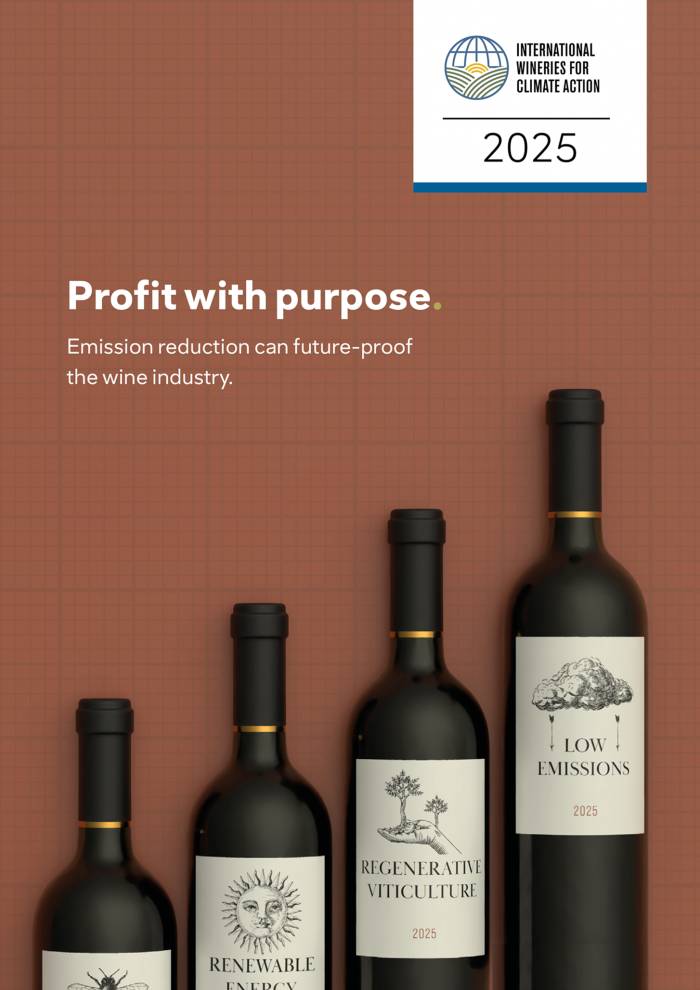IWCA Members Now Produce 3.5% of World’s Wine as Climate Action Drives Profits
Annual report shows sustainability efforts cut costs, boost efficiency and brand loyalty across six continents in the wine industry
2025-11-12

The International Wineries for Climate Action (IWCA) released its 2025 Annual Report today, marking a significant milestone for the organization and the global wine industry. The report, titled “Profit with Purpose: carbon emission reduction can future proof the wine business,” was launched from Santa Rosa, California, and Vilafranca del Penedès, Spain. It details how IWCA’s 175 member wineries now account for 3.5% of total global wine production, spanning six continents.
Over the past year, IWCA has increased its Gold Member count from nine to ten, reflecting a growing commitment among wineries to renewable energy and carbon reduction. The report emphasizes that climate action is no longer a passing trend but a structural shift in the wine sector. Wineries that adopt low-carbon technologies, optimize energy use, and rethink their supply chains are not only reducing emissions but also seeing measurable financial benefits.
The wine industry faces increasing risks from climate volatility, including rising temperatures and unpredictable weather patterns. IWCA members are responding by investing in innovative solutions that address these challenges while improving operational efficiency and reducing costs. The report highlights that consumers are increasingly seeking wines that align with their values, while retailers and distributors are prioritizing producers with credible sustainability credentials. Governments are also introducing policies that reward low-carbon operations.
Founded on principles of science, transparency, and collaboration, IWCA requires its members to commit to rigorous carbon accounting and ambitious emissions reduction targets. The organization welcomed new members from South Africa and Germany for the first time in 2025. It also launched its first Latin American greenhouse gas calculator, developed through collaboration with members in Argentina and Chile.
Throughout the year, IWCA hosted knowledge exchange sessions with industry stakeholders such as Scandinavian monopolies and the Race to Zero initiative. Members participated in major global events including Barcelona Wine Week in Spain, AWITC in Australia, and Prowein in Germany. These activities have helped spread awareness of decarbonization as a business imperative.
Wineries within IWCA report that sustainability initiatives often lead to cost savings, improved efficiency, and stronger brand loyalty. Many are adopting energy-efficient cellar operations and regenerative vineyard practices as part of their climate strategies.
Katie Jackson, President and co-founder of IWCA and Senior Vice President of Corporate Social Responsibility at Jackson Family Wines, stated that climate action is both a moral responsibility and a strategic business opportunity. She emphasized that reducing carbon emissions strengthens operations, enhances brands, and improves financial performance.
IWCA continues to invite wineries involved in any stage of wine production to join its mission to accelerate innovative climate solutions. The organization maintains an open call for new members who are committed to taking strategic action on sustainability.
The 2025 Annual Report positions IWCA as a leader in driving the wine industry toward a more sustainable future by aligning profitability with environmental responsibility. As the business case for decarbonization grows stronger, early adopters within the wine sector are setting new standards for success in an era defined by climate change.
| More information |
|---|
| (PDF)International Wineries for Climate Action (IWCA) 2025 Annual Report |
Founded in 2007, Vinetur® is a registered trademark of VGSC S.L. with a long history in the wine industry.
VGSC, S.L. with VAT number B70255591 is a spanish company legally registered in the Commercial Register of the city of Santiago de Compostela, with registration number: Bulletin 181, Reference 356049 in Volume 13, Page 107, Section 6, Sheet 45028, Entry 2.
Email: [email protected]
Headquarters and offices located in Vilagarcia de Arousa, Spain.